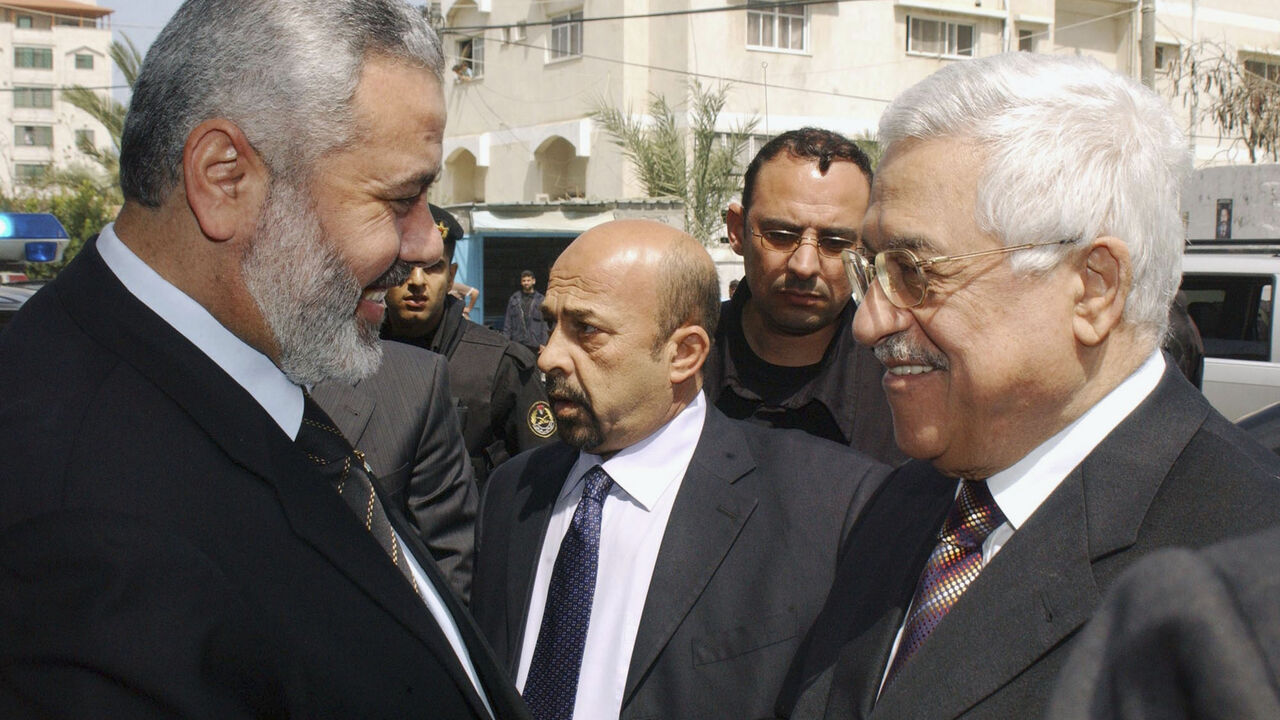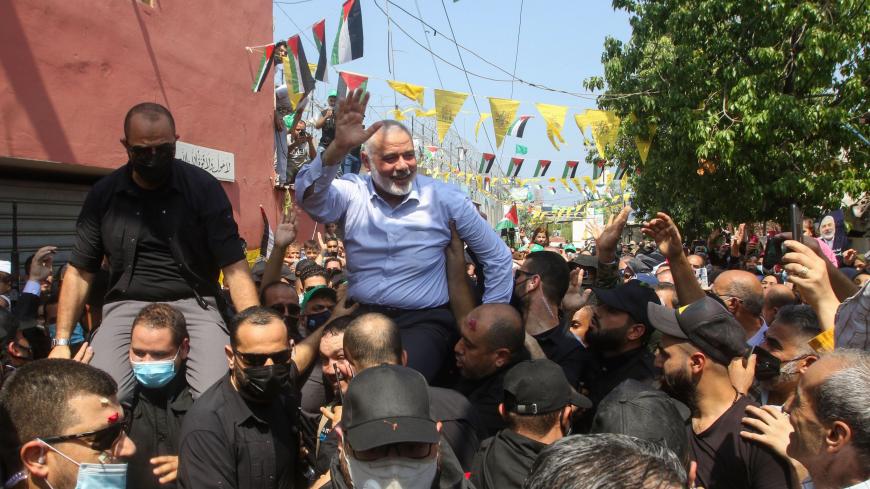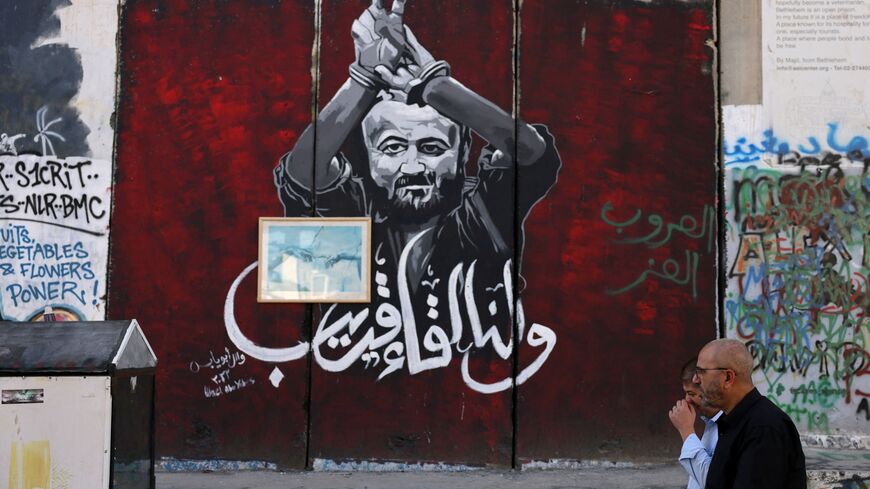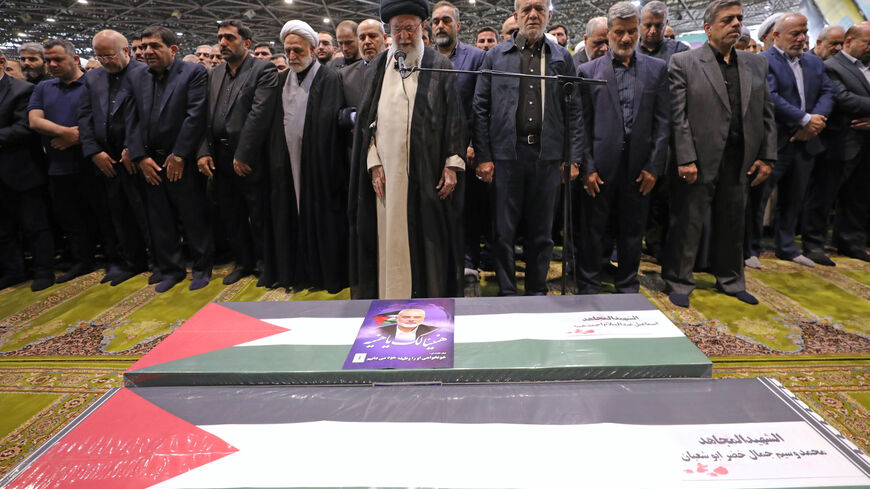With no love lost between Hamas and Fatah, Haniyeh’s killing unlikely to tip Palestinian politics
Though some see Ismail Haniyeh's death as an opportunity for the PA and Hamas to reconcile, President Abbas seems unlikely to venture down that road.

It is no secret that there is little love lost between the Ramallah-based Palestinian Authority (PA) leadership and Hamas. The two have been at loggerheads for years, but as news broke of Hamas political chief Ismail Haniyeh’s death in Tehran, a slew of statements from political leaders in Ramallah condemning the attack and labeling Haniyeh a national hero followed.
Though there is deep sympathy among Palestinians in the West Bank for those in Gaza, and polling indicates that a large percentage of Palestinians in the West Bank would like to see a reconciliation with Hamas, Palestinian President Mahmoud Abbas has shown little real interest in unifying the Palestinian factions since Fatah, his party, was chased out of the Gaza Strip by Hamas in 2007.
That has not changed with Haniyeh’s killing, after which a paradigm shift is unlikely, analysts and Fatah insiders say.
The most notable response from Ramallah was a phone call between PA Civil Affairs Minister Hussein al-Sheikh — one of Abbas' closest aides and a figure widely detested within Hamas' ranks — and Khaled Meshaal, a senior Doha-based Hamas official slated to replace Haniyeh as the head of Hamas outside of Gaza.
Sheikh described Haniyeh as a “national leader” whose “martyrdom constituted a great loss for the Palestinian people.”
Impact on Palestinian reconciliation
National reconciliation is the one card Abbas may have to play. A genuine agreement with Hamas might shore up his pitiful support on the Palestinian street and provide impetus for the resumption of peace talks, which have stalemated for years. But Abbas does not appear inclined to go down that road.
President Abbas will not travel to Doha for Haniyeh’s funeral on Friday. He will, however, head to Saudi Arabia on Sunday to meet with Crown Prince Mohammed bin Salman, indicating where his priorities lay; Abbas sees Saudi Arabia as holding a key to the PA’s potential resuscitation, rather than the Islamists in Gaza. In recent months, Saudi officials have indicated to the Ramallah leadership that they will resume sending direct financial support, which abruptly stopped in 2016, in a bid to help alleviate the PA’s dire economic situation.
In his absence from Doha, Abbas plans to send two of his trusted Fatah party lieutenants, Jibril Rajoub and Mahmoud Aloul, a senior Palestinian official told Al-Monitor. Rajoub is a former security chief who in recent years has spearheaded genuine attempts to reconcile with Hamas, though these efforts have frequently been undermined by Abbas.
Aloul, an Abbas loyalist and former Fatah military commander from Nablus, was in China last month, where he signed a new unity agreement with Hamas. Initial optimism soon fizzled out with that deal, which avoided several of the key issues of rupture between the two Palestinian factions and has delivered no substantial change. Aloul has even told aides that the Chinese-brokered agreement offered nothing new from previous outlines that also failed to result in a breakthrough.
Despite signing the agreement, Aloul has even admitted he is “not sure Hamas is really looking for reconciliation, and Abbas is not in a rush to make it,” a source close to him told Al-Monitor.
“People are frustrated and very sad [about Haniyeh’s killing],” said one Fatah official in Ramallah, “but the political leaders here are out of the game."
Haniyeh had been a key advocate within Hamas for reconciliation with Fatah. In the long run, his killing is unlikely to weaken the desire for national unity within the movement. Many of the candidates slated to replace Haniyeh, notably Mashaal, have spoken publicly in recent years in support of reunifying with Fatah and the Palestinian Authority.
The war in Gaza had seen Hamas’ and Haniyeh’s popularity balloon in the West Bank. A poll published last month by the preeminent Palestinian pollster Khalil Shikaki noted that support for Hamas in the West Bank stood at 41%, compared with just 17% for Abbas’ Fatah movement.
Hugh Lovatt, senior policy fellow at the European Council on Foreign Relations, said the assassination would likely drive up the popularity of Hamas in the West Bank.
“By boosting Hamas' popularity in the West Bank and further fanning popular rage against the occupation, Israel's assassination of Haniyeh will further marginalize the PA and its increasingly unpopular leadership led by President Mahmoud Abbas, who is widely seen as prioritizing cooperation with Israel and the US over national liberation,” he said.









